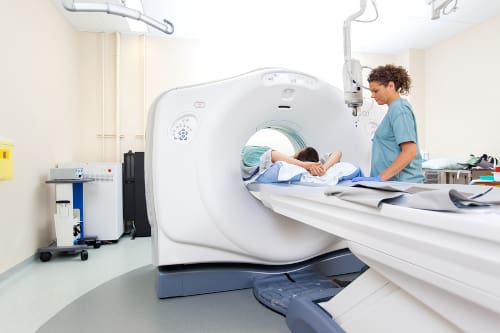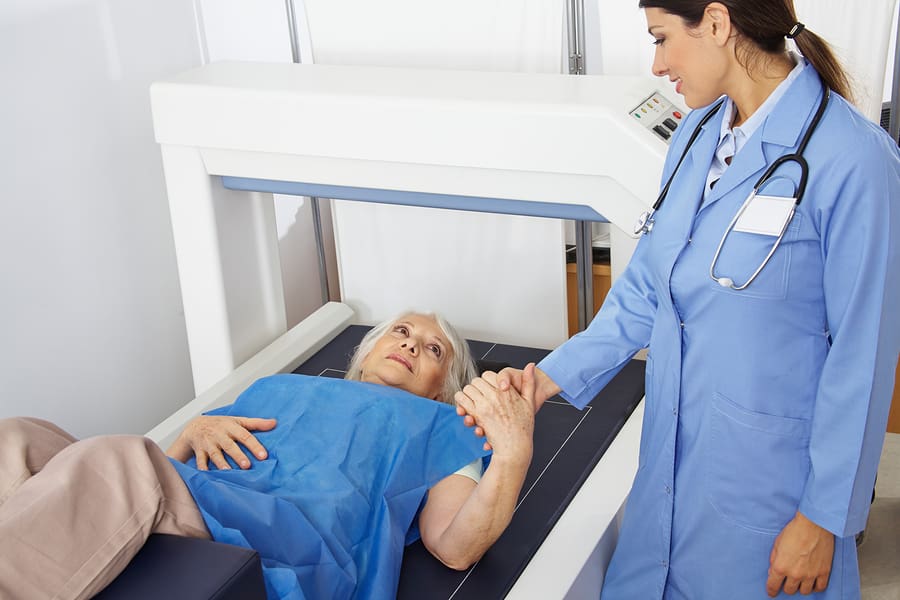Have you ever wondered what it’s like to work as an MRI Technician? Well, you’re in luck! In this blog post, we’ll take you through a typical day on the job, shedding light on the role of an MRI Technician, from the moment they enter the workplace until they wrap up their day.
The MRI Technician's Role
Before we dive into the details of a typical day, let’s understand what an MRI Technician does. MRI Technicians, often called MRI Technologists, are essential members of the healthcare team responsible for operating magnetic resonance imaging (MRI) equipment. They play a pivotal role in providing physicians with detailed images of the inside of a patient’s body, aiding in accurate diagnoses and treatment plans. MRI Technicians are not only skilled technicians but also empathetic professionals who ensure patients are comfortable throughout the imaging process.
Now, let’s embark on our journey through a day in the life of an MRI Technician. Keep in mind that while this account is based on real job responsibilities, it’s a composite example and not a representation of any specific individual.
Starting the Day with a Personal Touch
My day as an MRI Technician begins like many others, with a fresh cup of coffee to kickstart my energy. With a sense of purpose and a bit of caffeine coursing through my veins, I step into the world of medical imaging.
Welcoming Patients Over Coffee
As I walk into the facility, I grab a quick cup of coffee to keep me alert and focused. Then, it’s time to welcome our patients with that friendly smile I’ve come to consider my professional superpower.
Today, I recognized a patient and remembered they had voiced concerns about claustrophobia before the scan. It’s a common worry, and one that we take very seriously. So, I made sure to spend extra time talking to them, addressing their fears, and ensuring that they understood how the procedure works. In the end, the patient felt more at ease and ready to go ahead with the scan.
Explaining the Procedure with Compassion
The first patient for the day comes back for their scan. Once they are comfortably settled in, I take a moment to explain the MRI procedure to them, just like I did with our concerned patient. I find that taking the time to describe each step, from the whirring sounds of the machine to how long the procedure will take, helps put patients at ease. It’s not just about the technical aspect; it’s about helping them feel comfortable.
Positioning the Patient and Unveiling Insights
With our patient prepared and the scan ready to begin, I take my role as a technician seriously. The precise positioning of the patient is crucial for obtaining clear and accurate images. It’s like solving a puzzle where every piece matters, and I know that the quality of the results depends on my attention to detail.
As the scan progresses, I can’t help but think about what the images might reveal. Each scan is like opening a door to a new medical mystery. I know that these images will be invaluable to the patient’s healthcare journey.

The Results are In
After the scan is complete, I have the privilege of reviewing the images. It’s a moment of truth, as these images hold the key to diagnosis and treatment. Today’s scan showed something of significance, which means I need to prepare myself to help the doctor explain the findings to the patient.
Sharing the News with Care
The doctor and I meet with the patient to discuss the results. It turns out that the scan provided valuable insights into their condition. While this can be a moment of anxiety, I approach it with compassion and clarity. I take the time to explain the findings in simple terms, addressing their questions and concerns.
A Sense of Fulfillment
As the day winds down, I can’t help but feel a sense of fulfillment. I’ve helped patients navigate the anxiety of an MRI, provided them with information about their health, and contributed to their well-being. It’s a rewarding feeling that keeps me motivated.
Administrative Tasks and Preparing for Tomorrow
As the day draws to a close, I turn my attention to administrative tasks that help ensure the smooth operation of our MRI facility. While these tasks might not be the most glamorous part of the job, they are essential for maintaining efficiency and patient care. Additionally, this time is crucial for preparing for the challenges and opportunities that the next day will bring.
- Patient Records and Data Management: I meticulously maintain complete, accurate, and secure patient records by entering data into our electronic health records system, promoting compliance and seamless communication among healthcare providers.
- Stock and Supplies Inventory: I maintain essential supplies like contrast agents and sterile equipment, guaranteeing we’re always well-prepared for MRI procedures.
- Scheduling and Patient Preparation: I review the schedule, confirm patient appointments, and communicate special requirements, like dietary restrictions or sedation needs, to ensure a smooth patient experience.
- Professional Development: I stay updated through research, webinars, and discussions with colleagues, keeping current with MRI technology advancements for the best patient care.
- Mental Preparation: Before leaving, I reflect on the day, seeking ways to improve patient interactions and technical skills to approach each day with fresh commitment.
As I lock up the facility and head home, I carry with me a sense of accomplishment, knowing that the work I’ve done today has made a difference in the lives of our patients. And I look forward to the new challenges and opportunities that tomorrow will bring, confident that I am well-prepared to meet them head-on.
Wrapping up a Day of Compassion and Precision
Being an MRI Technician is more than just a job; it’s a journey filled with moments of connection, compassion, and technical precision. Each day is a unique blend of challenges and rewards, but the knowledge that you’re making a difference in patients’ lives is what keeps technicians passionate about this profession. And with every cup of coffee that kicks off the day, you’ll be ready to embrace the next opportunity to provide top-notch care to those who rely on us for answers and support.

